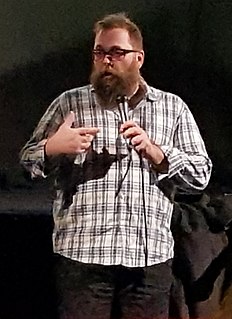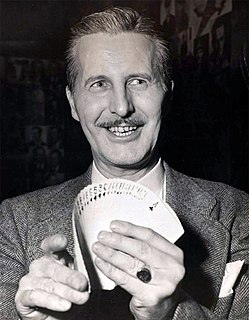A Quote by Roald Hoffmann
Alan Rocke's Image and Reality does so many things vividly and convincingly: it shows how visual images led chemistry step by step to the reality of the microscopic world; how simple portrayals of the logic of substitution and combination were reified; brings to our attention the imaginative, neglected work of Williamson and Kopp; and takes a critical look at Kekule's daydream. And it beautifully delineates the essential place the imagination has in science. A rewarding, lively picture of chemistry in formation.
Quote Topics
Alan
Attention
Beautifully
Brings
Chemistry
Combination
Critical
Daydream
Does
Essential
Formation
How
Image
Images
Imagination
Imaginative
Led
Lively
Logic
Look
Many
Neglected
Our
Picture
Place
Reality
Rewarding
Science
Shows
Simple
Step
Substitution
Takes
Things
Visual
Visual Image
Visual Images
Vividly
Were
Work
World
Related Quotes
Images of people, cities, and landscapes from the air tell a unique story about our personal space and how we relate to one another. I've always aimed to address the bigger picture and later trends. In many ways, what a photographer does is give others a chance to step back and look at their world and gain perspective on where we stand, and what that means.
To say that a thing is imaginary is not to dispose of it in the realm of mind, for the imagination, or the image making faculty, is a very important part of our mental functioning. An image formed by the imagination is a reality from the point of view of psychology; it is quite true that it has no physical existence, but are we going to limit reality to that which is material? We shall be far out of our reckoning if we do, for mental images are potent things, and although they do not actually exist on the physical plane, they influence it far more than most people suspect.
That morning I experienced vividly, if almost subliminally, the reality of change itself: how it fools our sentinels and undermines our defenses, how careful we are to look for it in the wrong places, how it does not reveal itself until it is beyond redress, how vainly we search for it around us and find too late that is has occurred within us.
We were always told we were one step behind Deep Purple, one step behind Led Zeppelin, one step behind everybody. Our manager didn't want to let us know how popular we were. It's only after we did Ozzfest that people started telling me stuff. I thought they were taking the piss. People would come up to me and go, "Respect."
I think it's probably true that creative people are touched by melancholy more than the average person, and to the extent that delving into that shadow world produces good work, I'm all for it. But I think you have to be able to step back from the work, and say, "Look how miserable I felt. Look how beautifully I wrote about it. Now I'm going to get an iced coffee and chat with a friend." Writing should be a way out of despair.
Animation remove you from a visual reality - if it was live action, you wouldn't be able to see through the person's mind. But animation takes a step away. It creates a very stylized landscape, but at the same time it is the form that is best able to address the reality of being alive and being in pain.
If you read Calvin, for example, he says, How do we know that we are godlike, in the image of God? Well, look at how brilliant we are. Look how we can solve problems even dreaming, which I think is true, which I've done myself. So instead of having an externalized model of reality with an objective structure, it has a model of reality that is basically continuously renegotiated in human perception. I think that view of things is pretty pervasively influential in Protestant thought.





































